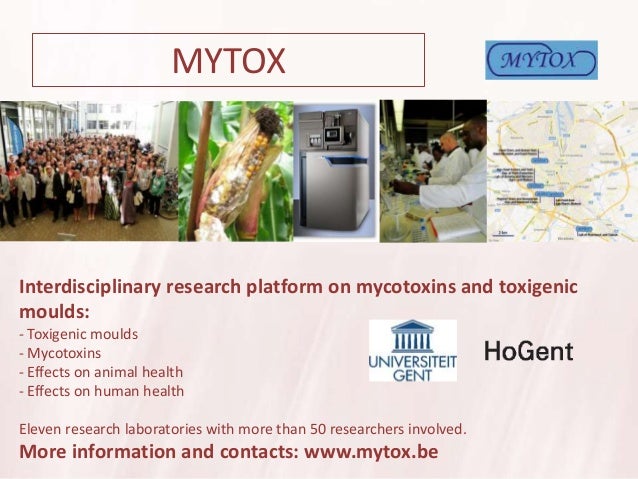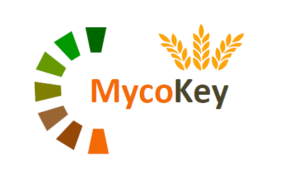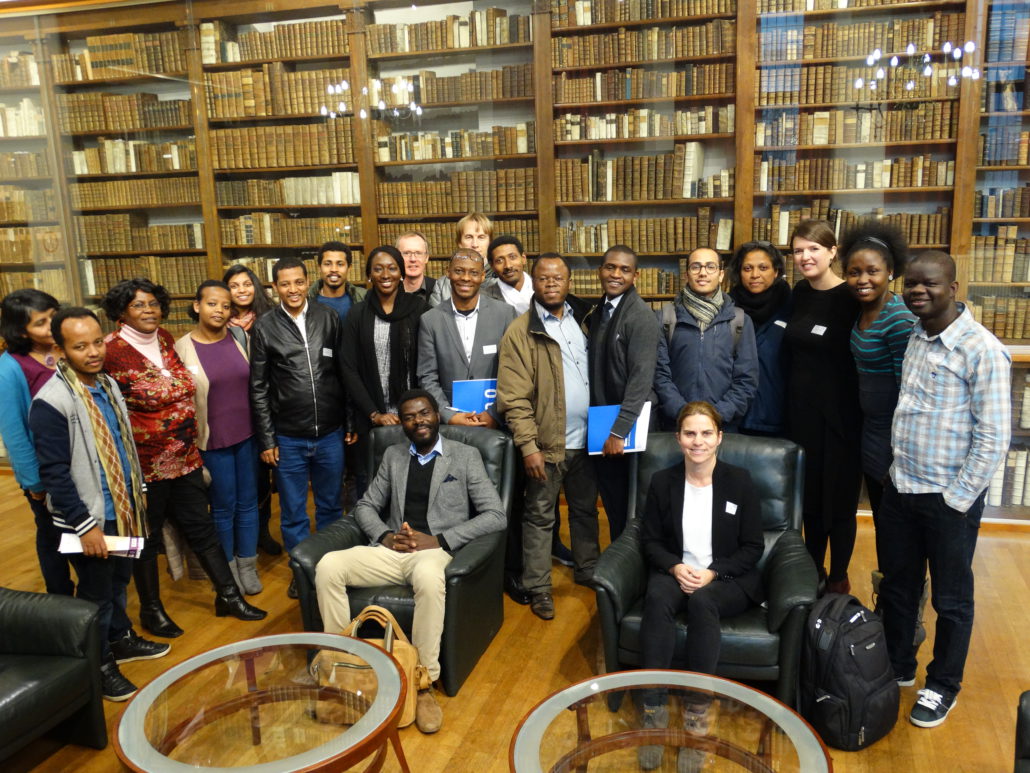 14 April 2017. The University of Ghent announced the approval of the International Thematic Network on Partnership to improve food security and food safety in developing countries: mitigation of mycotoxins -MYTOX-SOUTH.
14 April 2017. The University of Ghent announced the approval of the International Thematic Network on Partnership to improve food security and food safety in developing countries: mitigation of mycotoxins -MYTOX-SOUTH.MYTOX-SOUTH is a partnership to improve food security & food safety through mitigation of mycotoxins at global level with the following long term goals:
- BUILDING HUMAN CAPACITY. MYTOX-SOUTH will start by training, student/staff exchange programs and Joint PhDs which can contribute to an increased capacity of partners in the South and the identification of new research areas to reduce mycotoxin risks, to transfer knowledge on several detection techniques, to ameliorate pre- and post-harvest practices by using mycotoxin binders, biological control agents and other intervention techniques, to assess the risks when consumers are exposed to mycotoxins, et cetera
- BRIDGING THE GAP. For two decades focus has been set towards the problem of aflatoxins, however there has not been paid enough attention to the coordination of local (African) research capacity. Development actors are getting mobilized to tackle the problem, but bridging research and development in this field is challenging. Mycotoxin contamination of food and feed requires a development and research policy which translates research outcomes into practical ways which can bridge the gap between (1) research and the development of more safe food and feed, and (2) different actors including farmer organizations, NGO’s such as Mycotoxicology Associations, the private sector and policy makers.
- CREATING A SUSTAINABLE NETWORK, MYTOX-SOUTH will contribute to the coordination of research actors in order to focus skills and resources, and to improve the communication between research and non-research actors. As a solid consortium, MYTOX-SOUTH seeks for international funding opportunities to further enhance its capacity to deal with mycotoxins and the related food safety and food security challenges. By involving the Northern partners as CAS China, BioIntellipro LLC, the World Food Preservation Centre® LLC, USDA and PAEPARD a world-wide visibility will be achieved.
- MYTOX-SOUTH will broaden and consolidate the scientific network between South and North partners around the theme of mycotoxins and toxicogenic moulds with the ultimate goal of strengthening the capacity of the Southern partners, making collaborations and research output more sustainable.
- MYTOX-SOUTH is structured to bring together researchers with complementary expertise in different areas of the mycotoxin issue and includes 13 UGent ZAP/postdocs (active MYTOX members) and 12 professorial/post-doc research partners from different African countries/ universities, all of them are currently involved in collaborative work with UGent. In addition, 3 South-partners, namely Prof. dr. Martin Kimanya (2008), Dr. Limbikani Matumba (2014) and Dr. Happy Magoha (2014) obtained their PhD-degree at Ghent University, which demonstrates the top-level quality of the South partners.
- Additionally, the consortium includes 5 non-UGent Northern partners who have proven track record in food safety & food security issues in developing countries, and who already initiated collaboration with MYTOX. Moreover, the Chinese partner is included as part of the established collaboration ‘Ghent University-Shanghai Jiao Tong University – Chinese Academy of Sciences (Shanghai Institutes of Biological Sciences) - Joint Laboratory on Mycotoxin Research’.
- While the current focus is mainly on Sub-Saharan Africa, where the food security & safety issue is the most pronounced, the consortium can be later extended to other Southern countries/partners (including South-East Asia and South America).
- Okoth, Sheila,University of Nairobi, Kenya
- Woldegiorgis, Ashagrie Zewdu, Addis Ababa University, Ethiopia
- Njobeh, Patrick Berka, University of Johannesburg, South Africa
- Obadina, Adewale Olusegun, Federal University of Agriculture, Abeokuta, Nigeria
- Nyanga, Loveness Kuziwa, University of Zimbabwe
- Matumba , Limbikani, Lilongwe University of Agricultural Natural Resources, Malawi
- Atanda, Olusegun, McPherson University, Nigeria
- Magoha, Happy, Partnership for Aflatoxin Control – PACA, Ethiopia
- Rose, Lindy J., Stellenbosch University, South Africa
- Kimanya, Martin, Nelson Mandela African Institution of Science and Technology, Arusha, Tanzania
- Makun, Hussaini Anthony, Department of Biochemistry, Federal University of Technology, Nigeria
- Echodu, Richard, Faculty of Science, Gulu University, Uganda
- Wu, Aibo, Chinese Academy of Sciences, Shanghai Institutes of Biological Sciences, Institute of Nutritional Sciences, China
- Wilson, Charles L., World Food Preservation Center, USA
- Cotty, Peter, U.S. Department of Agriculture-Agricultural Research Service; School of Plant Sciences, The University of Arizona, USA
- Lo, Y. Martin, Biointellipro, USA
- PAEPARD, Forum for Agricultural Research in Africa (FARA)

Related:
 11-14 September 2017. Ghent, Belgium. 1st MYCOKEY International Conference on Global Mycotoxin Reduction in the Food and Feed Chain.
11-14 September 2017. Ghent, Belgium. 1st MYCOKEY International Conference on Global Mycotoxin Reduction in the Food and Feed Chain.Related:
On 9 December 2016 the Symposium of the Ghent Africa Platform – GAPSYM10 took place. A specific session was dedicated to mycotoxins as an important food safety issue in Africa. More detailed information can be found via the following link.

No comments:
Post a Comment